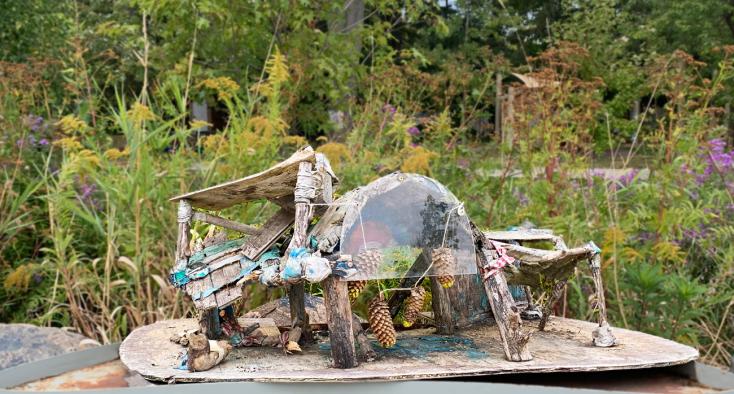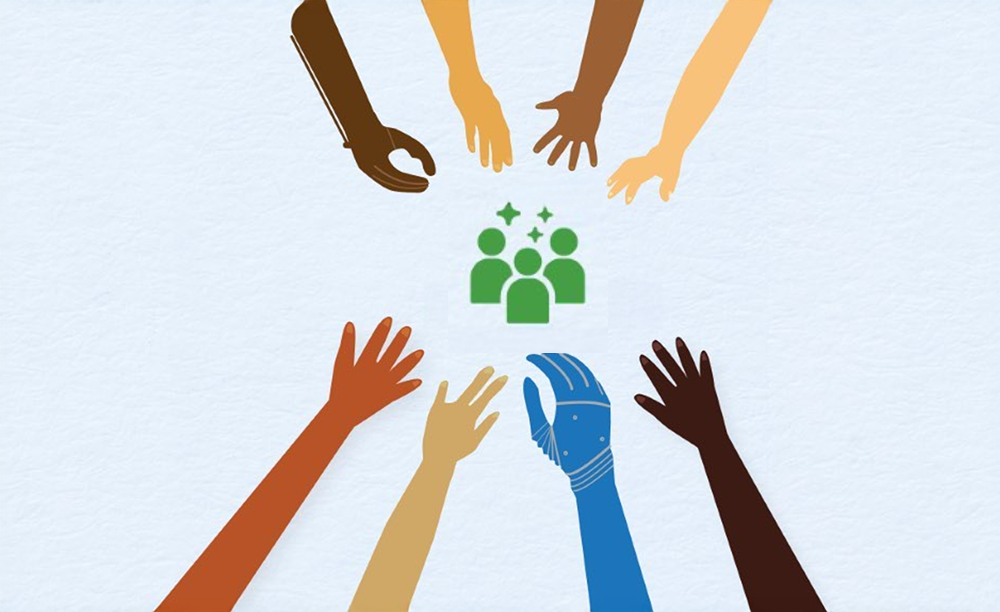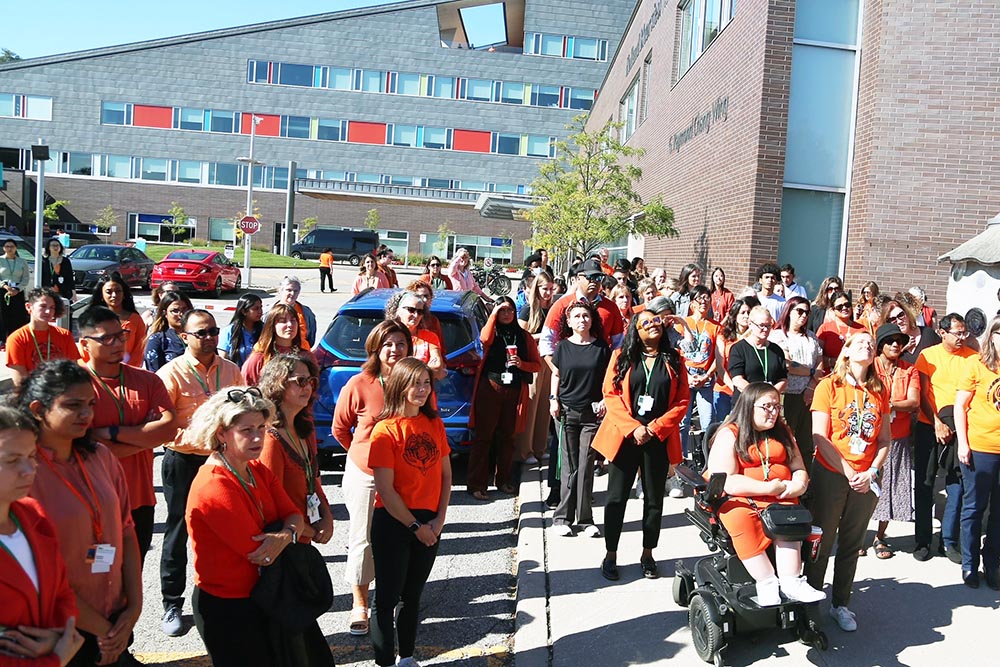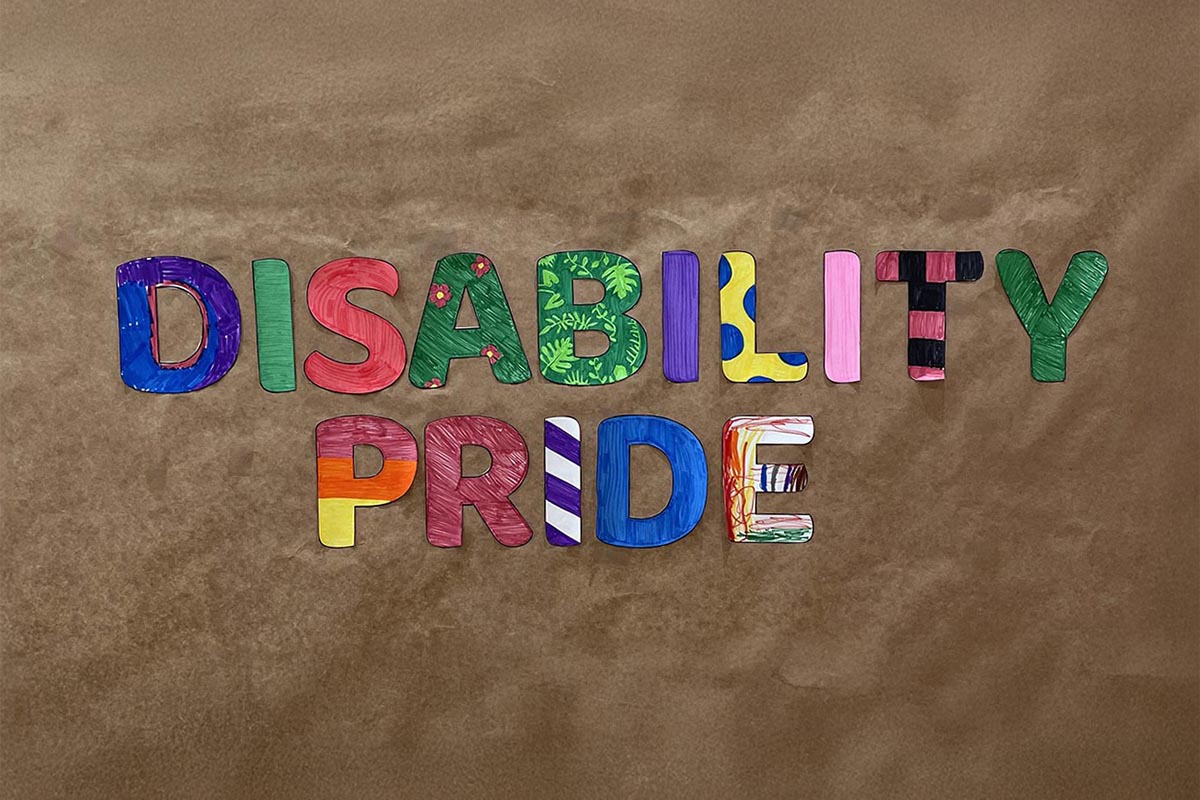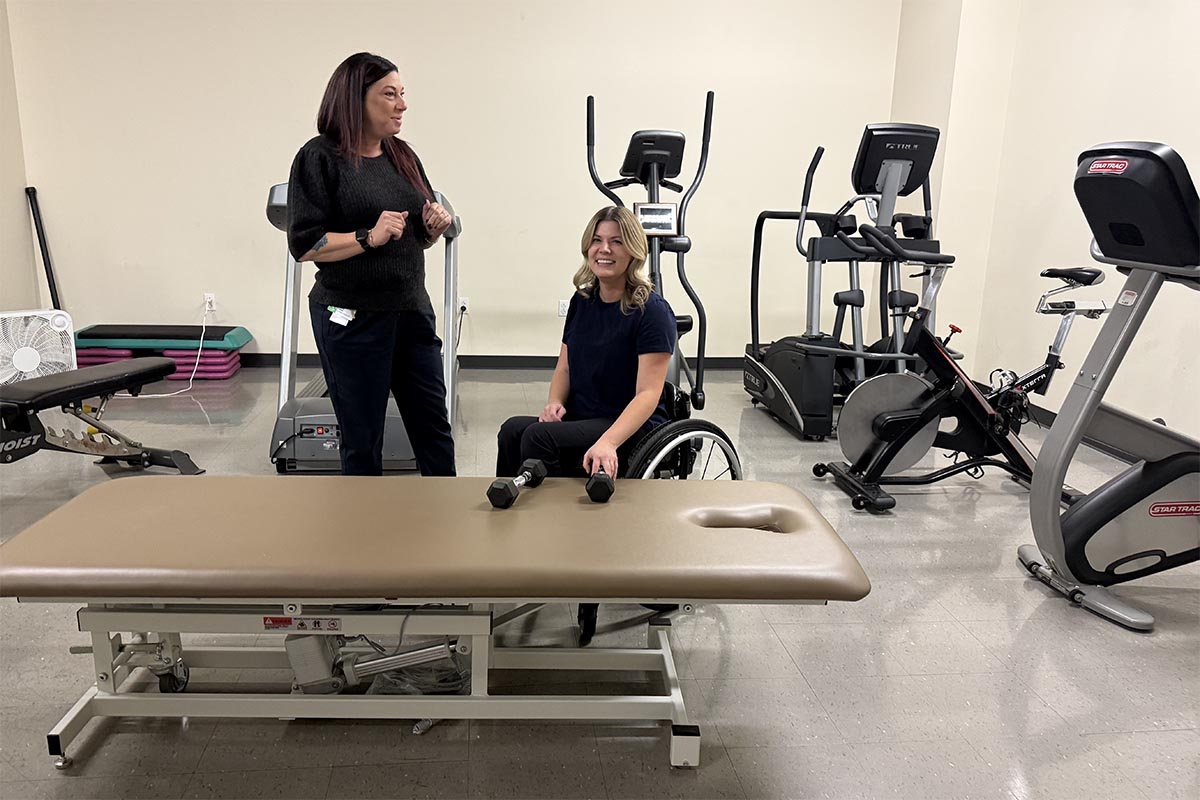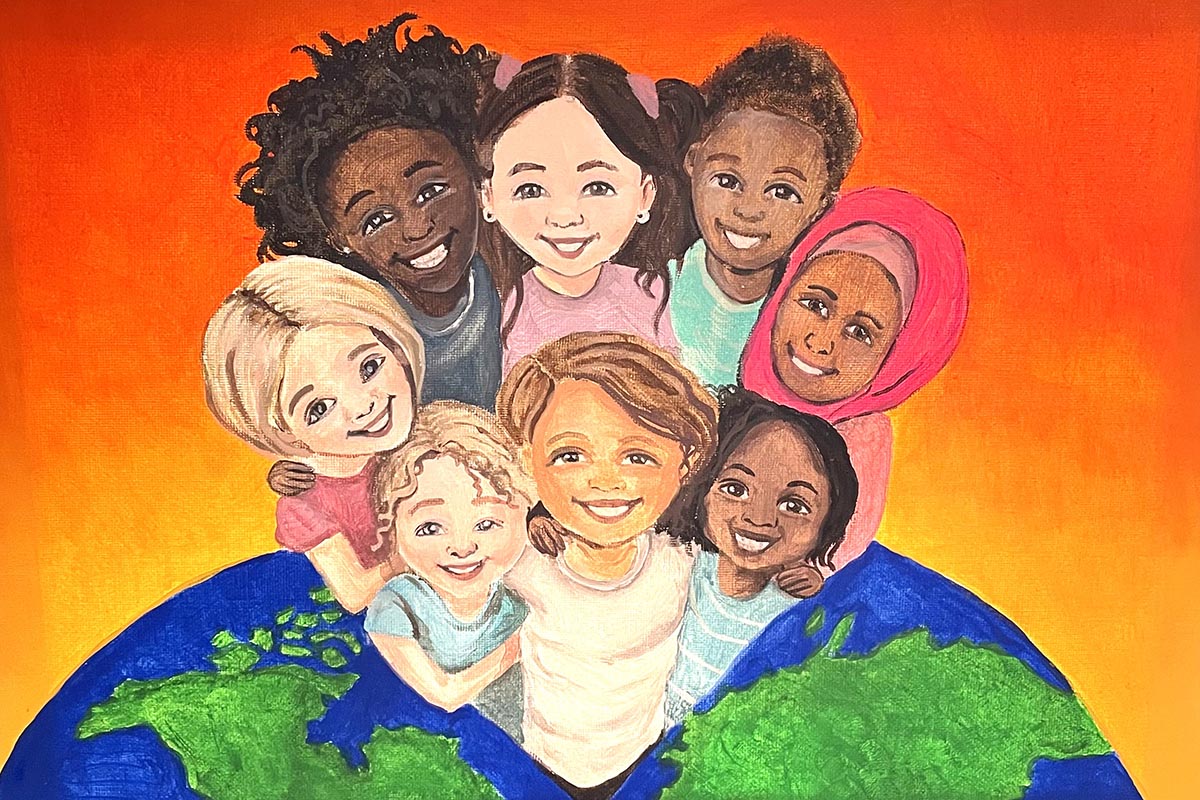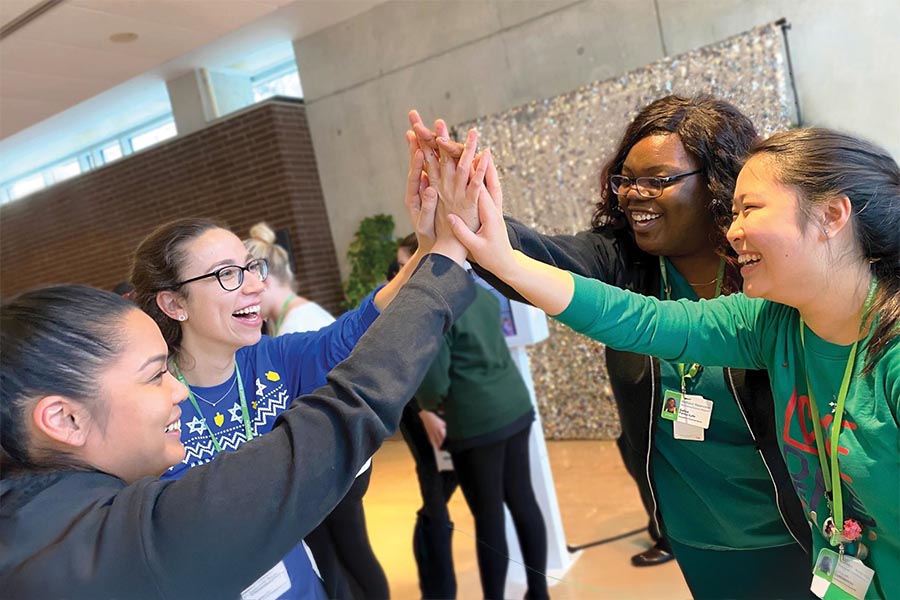Land acknowledgement
Holland Bloorview acknowledges the land we live, work, and learn on as the land that belongs to the Indigenous peoples of Canada. We are located on the traditional territory of the Haudenosaunee-speaking nations, including the Huron-Wendat, Seneca and Mohawk. It is also the traditional territory of the Mississaugas of the Credit. The City of Toronto is covered by Treaty 13.
We are grateful, honored, and humbled to have the opportunity to live and work in this city and this territory we call Turtle Island. We recognize that those of us who are settlers have roles and responsibilities that need to be engaged, to bring about a reconciliatory future. Chi-Miigwetch - Nia:weh - Merci - Thank you.
Holland Bloorview is committed to advancing Truth and Reconciliation by fostering culturally safe spaces, delivering inclusive education, and implementing supportive policies to ensure Indigenous, Métis, and Inuit clients and families receive the care they deserve.
IDEAA office
Holland Bloorview is committed to building and fostering an inclusive, diverse, equitable, accessible and anti-racist environment, where all individuals are valued and treated with respect and fairness. Our IDEAA office supports resource development and leads team consultations to nurture and amplify the diverse voices, perspectives, and justice-seeking change ideas offered by staff, students and trainees, volunteers, clients, families and alumni structurally disadvantaged by the health system.
IDEAA is dedicated to:
- Inclusion: feeling or experience of being valued.
- Diversity: presence of difference(s) in a setting that make a given person or community unique.
- Equity: an approach of being responsive to a community or individual’s unique needs through a redistribution of resources and opportunities, in ways that make up for a historical lack of fairness between people or communities.
- Accessibility: an experience or design feature that will ensure maximum participation by all individuals regardless of ability or background.
- Anti-racism: challenging policies and practices which mirror and reinforce beliefs, attitudes, prejudice, stereotyping about race.
